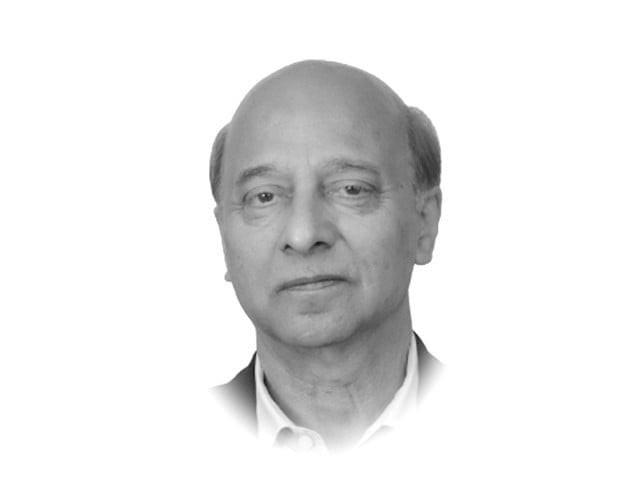Hostage to suspicion, acrimony and confusion?
Even more alarming is the TTP's expanding footprint.

Pakistan, a nuclear armed country with one of the seven largest armies of the world, is currently embroiled in multiple battles and political acrimony with neighbours; a ferocious war against TTP; tough posturing against Pashtoon Tahaffuz Movement (PTM); and an equally harsh stance vis-à-vis PTI across the country. In Balochistan, it faces the cold-blooded insurgency by the BLF and BLA inter alia. Its relationship with Afghanistan is log-jammed at the moment. Neither are ties with Iran ideal to the context of counter-terrorism.
Is it a policy or a strategy and what is its end-goal? Is it a quest for conflict resolution or a push for escalation? And can the country afford - and overcome - so many simultaneous conflicts at all?
Let us zoom out a bit for a better understanding.
Starting with the TTP, this proxy terrorist entity killed a record 1,612 civilian and military Pakistanis in 2024 - a nine year high.
Even more alarming is the TTP's expanding footprint. It claims that at least 70 groups have joined or merged into TTP over the past nearly four years, including 15 from Balochistan. It is also nominating officials to its military and intelligence wing as part of its war on Pakistan. At the same time the group's top tier leadership is safely nestled in parts of Afghanistan. The fact that Sirajuddin Haqqani, the interior minister, served as the guarantor and the go-between in Pakistan's talks with TTP in Kabul, points to the social facilitation that the Islamic Emirate provides to the group.
This very fact has brought the Pak-Afghan relationship to a near standstill - something that underscores the other dimension of the problem.
Indeed nothing could be more ironic: both countries are ethnically, linguistically and culturally so close but politically remain far apart - often either estranged, embittered or hostile. This has been the case particularly since the unfolding of the post-9/11 war on terrorism.
Islamabad's estrangement with Kabul and Kandahar is rooted in TTP's terrorist campaign in Pakistan. The Emirate's reluctance to neutralise this threat has had two adverse outcomes.
One is the harsh administrative measures on visa, refugees and undocumented Afghans in Pakistan and at times unreasonable restrictions on bilateral and transit trade.
The other has been Pakistan's hard approach i.e. bombing of TTP camps in December 2024, followed by aggressive Pakistani public statements. This invited similar offensive and at times irresponsible reactions from Afghan leaders. Information Minister Mulla Khairkhwa's message in a recent speech was a telling example. He reiterated the phrase "imaginary line" when referring to the Pak-Afghan border and described it as against "our tradition" to expel "our guests". It was though unclear if he meant TTP militants or those residents of Waziristan who had fled in the wake of the Operation Zarb-e-Azb in June 2014.
That is true in the sense that Mulla Omar preferred to face the American wrath (read the Global War on Terrorism in Afghanistan) instead of turning in his "guest" Osama bin Laden.
We should not forget that the Americans opted for negotiations after trying in vain the hard approach against the Afghan Taliban with the most sophisticated weapons including the Mother of All Bombs (MOAB) for nearly two decades.
Both the US and the Taliban had begun with a maximalist agenda but eventually found a middle ground.
Similarly, such TTP's non-negotiable demands should not stall the dialogue if the Islamic Emirate's wheeler-dealer Sirajuddin Haqqani stands as a guarantor? Since the Emirate provides shelter to the TTP, why shouldn't the latter respond to Kabul's concerns and its international obligations?
Will it be worth for Pakistan to keep pursuing the soft approach, engage the TTP and win over reconcilable cadres before hard-hitting the irreconcilables - the proxy terrorists? Is Pakistan ready to go that route despite the TTP demand for restoration of former FATA and the removal of army from those border regions?
In order to narrow the space on TTP in Afghanistan, the best course for Pakistan will be to ease conditions for visa and trade - both a source of negative story on Pakistan.
Afghans at large believe that Pakistan has weaponised visa, trade and the issue of refugees to get even with Kabul over TTP's sanctuaries in Afghanistan. The policy has had little impact on terrorist violence but entailed big negative consequences for bilateral and transit trade, much of which has now moved to Bandar Abbas.
The stated objectives of a strict visa regulations is to contain movement of terrorists, but the policy has bred more resentment among common Afghans. Most applications get rejected in the first instance and that too after a wait of several weeks.
Or is this policy a ploy by the bureaucracies involved for personal monetary gains? Pakistan also needs to apply a rational, and universally practised humanitarian lens to the issue of refugees and undocumented Afghans born or living here for decades.
Have the punitive measures worked to convince the Afghan Emirate of Pakistan's viewpoint? Apparently not. It certainly necessitates a different approach, although Kabul also needs to act as a sovereign but responsible state, and not as an aggrieved kid that always needs to be treated with affection.
Lastly, Pakistan's current situation in both Khyber-Pakhtunkhwa and Balochistan demands focus on issues that are existential in nature. Do TTP, BLF and BLA represent such a threat or the opposition party PTI?
The nature of threats require a clearly thought-through counter-terrorism policy which can focus on both the soft and hard approaches. Compromising fundamentals of the rule of law (key to effective counter-terrorism policies) in favour of one or the other party only complicates the situation.














COMMENTS (1)
Comments are moderated and generally will be posted if they are on-topic and not abusive.
For more information, please see our Comments FAQ